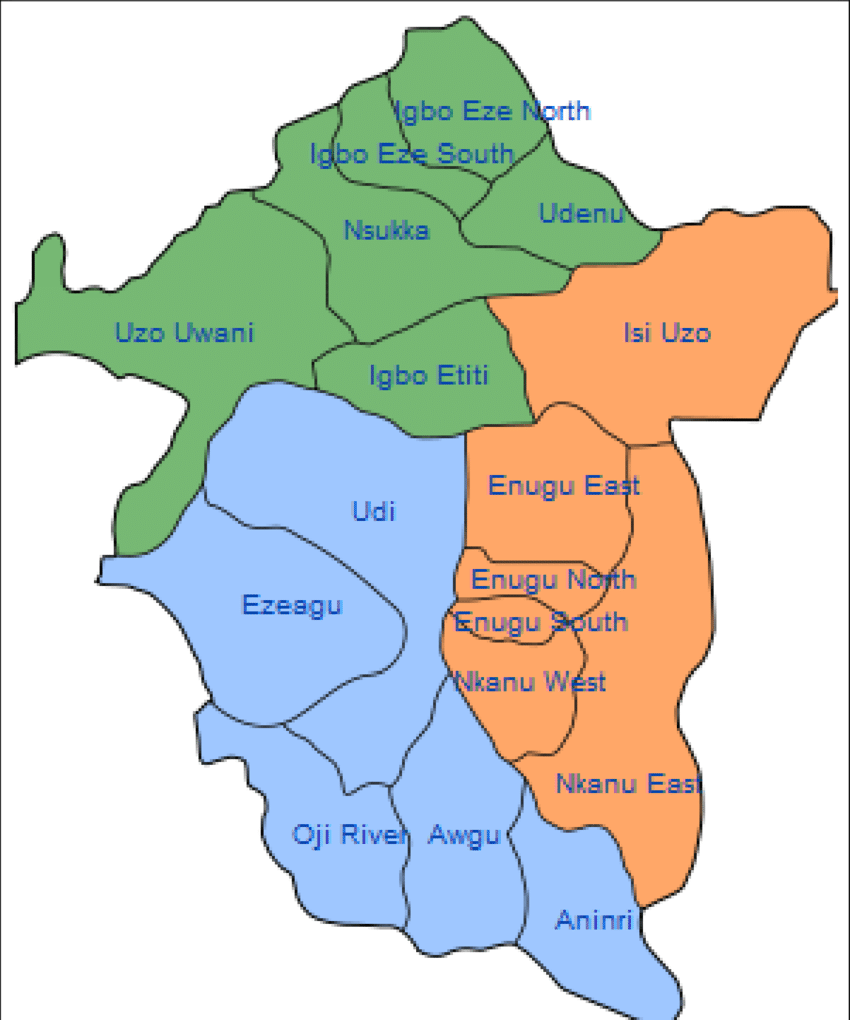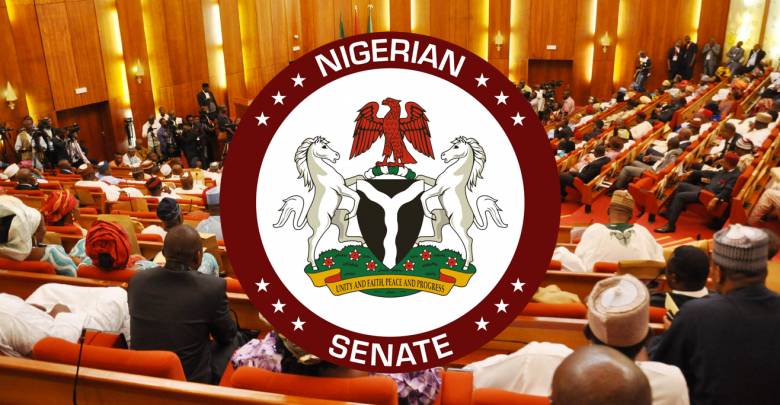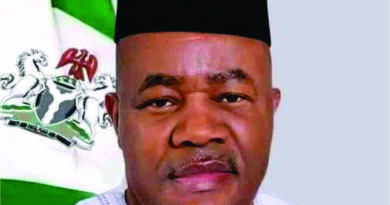Equality is equity- Understanding the dynamics of geo–political balancing in Enugu State

By Senator Chukwuka Utazi
The political environment in the country is heating up as the 2023 general elections approach. One state that will be of interest to watch is Enugu State. The contest for the office of the Governor of Enugu State has thrown up various perspectives with political actors, stakeholders and the populace taking various positions. The issue of which part of the state should produce the Governor has come into sharp focus, with many contending interests and interpretations. Expectedly, groups are aggregating around the point of view that best pander to their interest. One hopes that whatever happens, that Enugu State stakeholders will remember that what unites us is bigger that what divides us.
No matter how must emotional investment anybody makes or how the political tapestry unveils, some factors are present. And if equity, fairness and the need to give every part or group what is their due, then I should ask that a dispassionate reading of all the metrics at play, will come to the conclusion that equality is equity and that the Nsukka geo-political zone be supported to continue to hold the office of Governor for another eight years.
Enugu State as it is today was created out of Anambra State in 1991. The old Anambra State had five zones delineated according to their population and considerations of constituency delineation. The five zones were Onitsha, Awka, Nsukka, Enugu and Abakaliki. This was the constituency configuration upon which the general elections of 1979 and 1983 were conducted. In 1991, Anambra State was splintered in a military-government state creation exercise, whereby Onitsha and Awka Zones became the new Anambra State and Nsukka, Enugu and Abakaliki Zones became the new Enugu State.
In 1996, in yet another sleight of the military hand in state creation, Abakaliki Zone of Enugu State was carved out to fuse with Afikpo Zone of Abia State to become Ebonyi State. This left, in Enugu State, Nsukka and Enugu Zones. It is to be noted that Nsukka Zone in this configuration, had about 53% of the population and over 60% of the land mass.
But Nsukka had a disadvantage: its people did not embed themselves in governmental structures and they did not embrace civil service in time. So, at the time of constituency delineation leading up to the 1999 general elections, with Enugu Zone practically in all crevices of bureaucratic structures in the country, and with an Enugu Zone Leader a Minister in the government of General Abacha under whom the delineation was conducted, a gerrymandering occurred against Nsukka Zone, despite having numerical and mass advantage. The 1999 Constitution made provisions for three Senatorial Districts for each State to create a semblance of equality of States. The gerrymandering manifested as these Districts were being delineated. Enugu Zone, with less population, was split into two Senatorial Districts of Enugu West and Enugu East. To give flesh to the chicanery, Isi-Uzo Local Government Area, of Nsukka Zone, of Nsukka cultural pedigree, was excised and put into Enugu East Senatorial Zone, on the pretext that Isi-Uzo had Nkanu roots. Against all grain of political constituency delineation exercises where population was the critical consideration, number of Local Governments was used in the conspiracy against Nsukka.
The subterfuge consequently showed in the delineation of federal constituencies for purposes of representation in the House of Representatives: Nsukka Zone was allotted 3 Federal Constituencies while Enugu Zone was allotted 5.
Many factors were responsible for this injustice against Nsukka. We had identified that Enugu Zone embraced civil service early and understood the importance of fixing their people in positions of bureaucracy. They used it to maximum advantage. The second was the comparative advantage our brothers in Enugu Zone had, when their people were appointed into high political positions that determined geo-political delineation, like Minister and the Political Bureau. Of importance also was that during the military era, no single Nsukka military officer was appointed Military administrator, while many Enugu Zone military personnel held such offices, at a critical time decisions of the military hierarchy were law. Madueke, Orji, Aneke, Ogugua readily come to mind. This was in addition that Enugu Zone held more time as Governor of then Anambra State and later Enugu State. We will come back to this.
To underscore this geo-political balancing, in 1991 after Dr. Okwesilieze Nwodo became the Governor of Enugu State, The Speaker of the State House of Assembly was Hon. Anthony Agbo from Abakaliki Zone, who later became a Senator. I deputized Agbo as Deputy Speaker. The official developmental policy of the Nwodo Administration was a system of triangular equilibrium, to take development to the three zones of the then State.
Until Nwodo became Governor in 1990, no Nsukka person had been Governor. Chief Jim Nwobodo had been in the old Anambra State. So had the highly revered Chief C. C. Onoh. Both were from Enugu Zone. With the return of democracy in 1999, Dr. Chimaroke Nnamani (1999-2007) and the gentlemanly Mr. Sullivan Chime (2007-2015), both from Enugu Zone did an unbroken 16 years at the helm of affairs as Governors of Enugu State. Indeed, during the tenure of my good brother and boss, Mr. Chime, the Deputy Governors were all from the same Enugu Zone, which as we have seen above, had been broken into two senatorial districts
The consequence of the tilting of political power and the reality of the subterfuge of making one Zone to become two is manifested in the preponderance of infrastructure and developmental thrusts in Enugu Zone. Federal infrastructure that should have been shared half and half alike, is now, if ever, shared two to one. Distribution of zonal intervention projects attracted from the National Assembly are so heavily tilted in favour of Enugu Zone because the Zone had been split into two, leaving a hugely populated Nsukka zone with one, except that Isi-Uzo that was spirited away into Enugu Zone to justify the gerrymandering. Since the return of democracy in 1999, Enugu Zone has produced all the Ministers from Enugu State. This has consequence in terms of federal presence.
After Enugu Zone did 16 years of Dr. Nnamani and Mr. Chime from 1999-2015, Rt. Hon. Ifeanyi Ugwuanyi who started in 2015, from Nsukka Zone will complete eight years as Governor in 2023. And therein lies the crux of our case.
Truth be told, Nsukka zone is shortchanged in the geo-political dynamics of Enugu State. It has also been marginalized. Very few infrastructures have been built there. The few that were sited there were taken away to Enugu Zone. A campus of Enugu State University of Science and Technology, in compliance with the original intendment of a multi-Campus structure of the University at design, that was sited in Adada – Nkpologu, in Uzo-Uwani Local Government was forcefully yanked away and relocated to Agbani, in Nkanu West of Enugu Zone. Apart from the University of Nigeria Nsukka, which Zik mercifully sited in Nsukka, no other federal presence of note is in Nsukka. And even at that, all the prime faculties and Departments of the University, Medicine, Medical Lab, Law, Business, Accounting, Estate Management, Architecture are all in Enugu. Nsukka does not have a single tertiary hospital to receive referrals from primary and secondary health facilities, resulting in avoidable deaths witnessed as the patient is being transported to Enugu. Although UNN is in Nsukka, but the University Teaching Hospital is in Ituku Ozara, in Nkanu, in Enugu Zone. Psychiatric Hospital, Orthopeadic Hospital, Dental School are all in Enugu Zone. For how long would our brothers refuse to empathize with us? It is undeniable that developmental activities of government in Enug State is lopsided against Nsukka.
Conscience is open wound, only truth can heal it, so says Uthman Dan Fodio. This is our case. It is this feeling of marginalization that is driving the clamour for Adada State. We ask our compatriots from Enugu Zone to look critically at the issues of geo-political balancing in Enugu State and see whether Nsukka zone is not being cheated, and therefore a bold affirmative action be taken to redress the imbalance, not only in infrastructure and development, but also in spread of political positions. The powerful may glow in its power, but the oppressed will keep record of the wrongs done him. The victor may exult in his fame, but the victim will count the points of oppression. You cannot beat a child, and ask her not to cry.
Nsukka zone demands that everything considered, that the Zone be supported to produce the flagbearers of all political parties of consequence in the race to the Governorship of Enugu State in 2023. We ask this in the spirit of brotherhood. It is the right thing to do. As William Penn said, “Right is right, even if everyone is against it, and wrong is wrong, even if everyone is for it”. We ask for 16 for 16. It is fair. It is equality. It is equity.
Senator Utazi represent Enugu North Senatorial District in the Senate.


